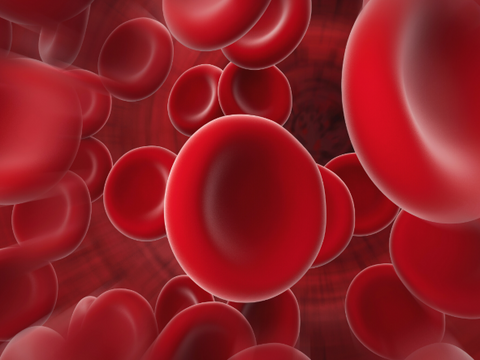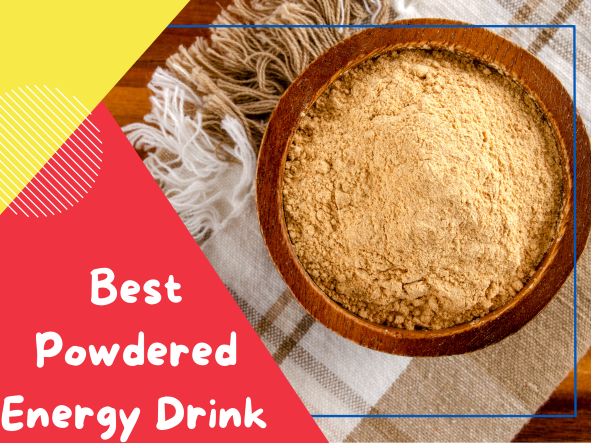Best Powdered Energy Drink
Are you looking for the healthiest but cheapest energy drink mix on the market? Teacher Power Energy Drinks have you covered with six delicious flavors.
Simple Ingredients to Boost Energy
Teacher Power’s energy drink mixes contain simple ingredients to boost energy by harnessing the power of B Vitamins and caffeine.
Vitamins B3, B5, and B6 support the natural process of converting food into energy. Vitamin B12 supports sufficient numbers of healthy red blood cells responsible for delivering oxygen and fuel to muscles and organs.

Caffeine inhibits the binding of the inhibitory neurotransmitter adenosine. This allows other neurotransmitters responsible for cognition, memory recall, alertness, and mood to bind to boost overall energy and performance.
With Teacher Power Energy Drinks, the best perk is there is no associated sugar crash. Our simple sugar-free formula provides hours of go, go, go while leveling out energy levels.
Budget-Friendly Powder Mixes
Teacher Power provides a healthy morning or afternoon boost to your day at the low cost of $0.35-$0.40 per serving. One serving of Teacher Power Energy Drinks gives you a full array of B-Vitamins and 100 mg of caffeine.
We keep costs low by only incorporating simple, science-backed energy-boosting ingredients. To further cut costs, we bulk package our energy formula in convenient tubs. Our tubs include a user-friendly measuring scoop to put you in control of your dosage, taste, and use.
If you are like me and prefer smaller caffeine dosages, the cost per serving goes down without having to deal with an opened single-serving stick pack. No mess, convenient use, and controlled dosage put you on top of your day with Teacher Power Energy Drinks.
For those looking to support their immune system along with a boost of energy, check out Teacher Power’s two new products in Caramel Apple and Wassil. We added Vitamin D, echinacea extract, elderberry extract, ginger powder, and curcumin to our Energy A+ mix. These drinks are perfect for the cold and flu season and can be enjoyed hot or cold.
Other Energy Drink Mixes
There are loads of energy drink mix powders on the market. Why would you consider purchasing Teacher Power over all the other choices?
Cost
Are you choosing a powdered energy drink to save money? Many of the energy drink powders available on the market cost between $1.60-$0.70 per serving. If you are not paying attention, an energy drink mix is as expensive as liquid energy drink cans.
To compare options, determine the cost per serving by dividing the total price by the number of servings given on the nutrition fact panel.
Added Chemicals
The nutritional fact panel is your best friend when it comes to finding healthy energy drinks. Many options appear to contain a multi-vitamin. Do you want a multi-vitamin in your energy drink?
In addition, many mixes list numerous chemical ingredients that have not been clinically proven to promote energy. Added vitamins and chemicals may not be what you are looking for in an energy boost, and they only increase the price.

For consumer education, take a look at some popular chemicals added to energy drinks. What are they? What does the research indicate? And is the cost of adding them to the mix worth it?
- Taurine is a sulfur-containing amino acid readily available in animal products. Taurine is an amino acid synthesized by the human body using Vitamin B6 as a co-factor.
Taurine human studies show little to no impact on physical performance. A 2012 cognitive performance study isolating the benefits of caffeine, taurine, and glucose found “Caffeine, not taurine or glucose, is likely responsible for reported changes in cognitive performance following consumption of energy drinks.”
- Glucuronolactone – Both WebMD and Examine.com report there is surprisingly little research or no good scientific evidence to support the use of glucuronolactone in energy drinks.
- L-Tyrosine is another amino acid generated by the human body. It is the forerunner of dopamine and norepinephrine. A review of studies found L-Tyrosine may minimally improve physical performance.
However, in high-stress situations, it may enhance cognitive performance in high doses of 100-150 mg/kg body weight. For the average American, that equates to over 9 g for males and over 7 g for females. For perspective, L-Tyrosine is contained in an ineffective dosage inside the 1870 mg energy blend comprising eight ingredients in 5-Hour Energy.
- Panax Ginseng comes from an Asian plant. It may have an anti-fatigue effect by decreasing oxidative stress to promote energy production as shown by mice studies.
Panax Ginseng’s impact on cognition has been well studied. Daily doses of 400 mg appear to provide the most benefit. A 2019 Korean study found significant improvement in immediate and delayed recall for volunteers with mild cognitive impairment.
In most energy drinks, Panax Ginseng is included in a listed energy blend. The specific amount contained is not disclosed.
- L-Carnitine is naturally produced by the body and abundantly found in animal products, especially beef. Its main role in the body is to help produce usable energy from fatty acids. Clinical trials show L-Carnitine may have little effect on physical fatigue.
Regular L-Carnitine supplementation may protect brain cells to improve cognitive functioning. Numerous clinical trials show a link between L-Carnitine use and minor improvements in memory, attention, and verbal fluency, especially in elderly participants.
Dosage recommendations range from 500-2,000 mg. In most energy drinks, L-Carnitine is included in a listed energy blend.
- Inositol is found in most food, especially citrus fruits and whole grains. Inositol appears to benefit insulin resistance and help reduce anxiety. However, inositol has not been studied for physical or mental performance enhancement.
- Choline is an amino acid derivative found abundantly in egg yolk. Choline has not been well studied. The few small studies found no significant influence on fatigue, memory, or cognition.
Are you looking for a cheap, healthy way to boost your energy level? Then why pay for ingredients that have not been shown to increase physical energy or cognitive functioning? Or why pay for ingredients contained in amounts significantly below effective dosages?

Teacher Power has you covered with cost-effective energy drink powders. Our simple ingredients are healthy, vegetarian, keto-friendly, and low-calorie. And they taste great, too. Fruit Punch, Raspberry, Black Cherry, and my favorite Strawberry Lemonade.
Teacher Power puts you in control. Refresh, pump up, focus, and get to work. No crash. Just smooth energy. Trust your performance to Teacher Power today.
The content of Teacher Power’s website is for information only, not advice or guarantee of outcome. Information is gathered and shared from reputable sources; however, Teacher Power is not responsible for errors or omissions in reporting or explanation. No individuals, including those taking Teacher Power products, should use the information, resources or tools contained within to self-diagnosis or self-treat any health-related condition. Teacher Power gives no assurance or warranty regarding the accuracy, timeliness or applicability of the content.
By: Jae O. Haroldsen
Sources:
Scott, Gayle Nicholas. “Taurine in Energy Drinks: Backed by Research or Just Bull?” Medscape. 2013. https://www.medscape.com/viewarticle/804080
Giles GE, Mahoney CR, Brunyé TT, Gardony AL, Taylor HA, Kanarek RB. Differential cognitive effects of energy drink ingredients: caffeine, taurine, and glucose. Pharmacol Biochem Behav. 2012 Oct;102(4):569-77. doi: 10.1016/j.pbb.2012.07.004. Epub 2012 Jul 20. PMID: 22819803.
Patel, Kamal. “Glucuronolactone - Uses, Side-Effects, and More.” WebMD. 2020. https://www.webmd.com/vitamins/ai/ingredientmono-1624/glucuronolactone
“Glucuronolactone.” Examine.com. 2018. https://examine.com/supplements/glucuronolactone/research/#sources-and-stucture
Jongkees BJ, Hommel B, Kühn S, Colzato LS. Effect of tyrosine supplementation on clinical and healthy populations under stress or cognitive demands--A review. J Psychiatr Res. 2015 Nov;70:50-7. doi: 10.1016/j.jpsychires.2015.08.014. Epub 2015 Aug 25. PMID: 26424423.
Patel, Kamal. “L-Tyrosine.” Examine.com. 2021. https://examine.com/supplements/l-tyrosine/
Wang J, Li S, Fan Y, Chen Y, Liu D, Cheng H, Gao X, Zhou Y. Anti-fatigue activity of the water-soluble polysaccharides isolated from Panax ginseng C. A. Meyer. J Ethnopharmacol. 2010 Jul 20;130(2):421-3. doi: 10.1016/j.jep.2010.05.027. Epub 2010 May 24. PMID: 20580802.
Park, Key-Chung et al. “Cognition enhancing effect of panax ginseng in Korean volunteers with mild cognitive impairment: a randomized, double-blind, placebo-controlled clinical trial.” Translational and clinical pharmacology vol. 27,3 (2019): 92-97. doi:10.12793/tcp.2019.27.3.92
Sugino T, Aoyagi S, Shirai T, Kajimoto Y, Kajimoto O. Effects of Citric Acid and l-Carnitine on Physical Fatigue. J Clin Biochem Nutr. 2007 Nov;41(3):224-30. doi: 10.3164/jcbn.2007032. PMID: 18299720; PMCID: PMC2243251.
Patel, Kamal. “L-Carnitine.” Examine.com. 2022. https://examine.com/supplements/carnitine/
Passeri M, Iannuccelli M, Ciotti G, Bonati PA, Nolfe G, Cucinotta D. Mental impairment in aging: selection of patients, methods of evaluation and therapeutic possibilities of acetyl-L-carnitine. Int J Clin Pharmacol Res. 1988;8(5):367-76. PMID: 3229874.
Patel, Kamal. “Inositol.” Examine.com. 2022. https://examine.com/supplements/inositol/
Patel, Kamal. “Choline.” Examine.com 2020. https://examine.com/supplements/choline/

